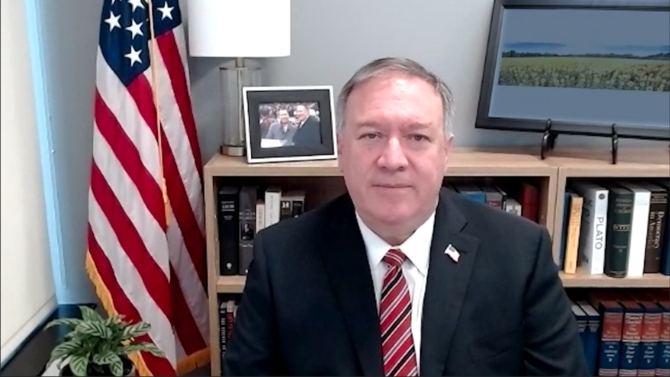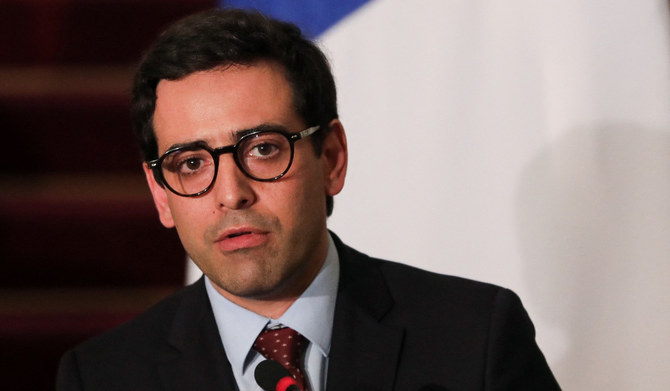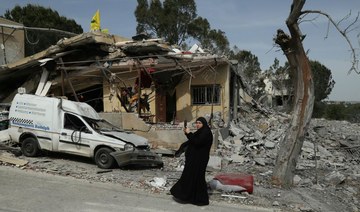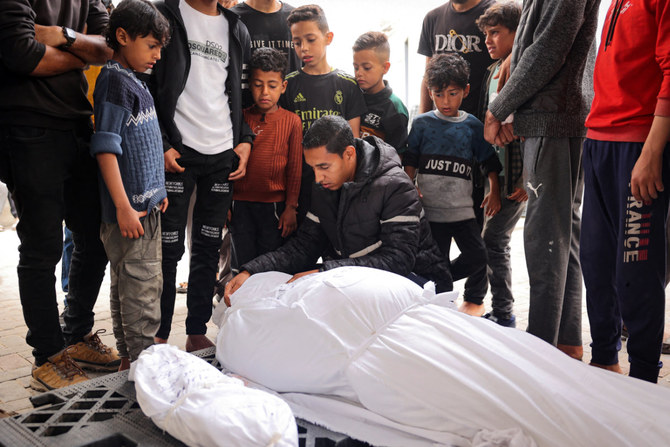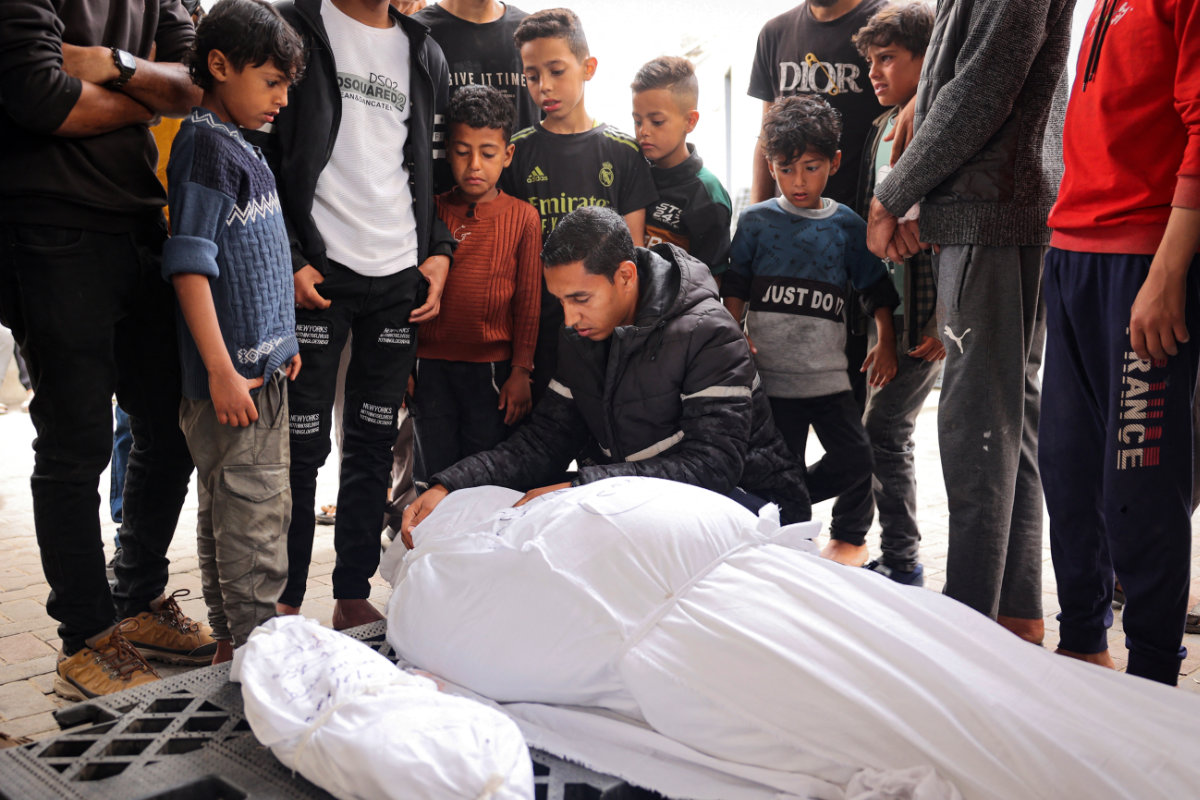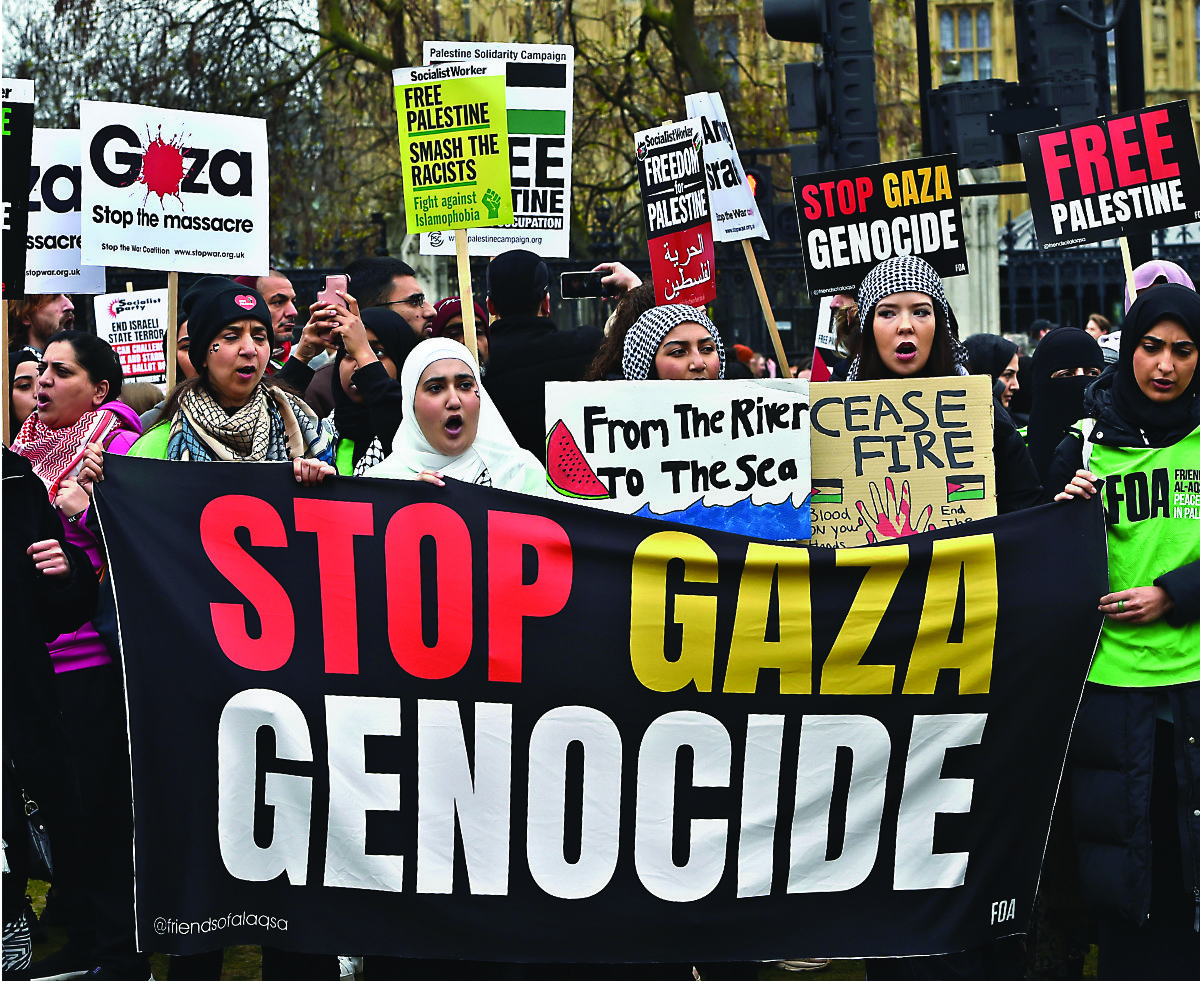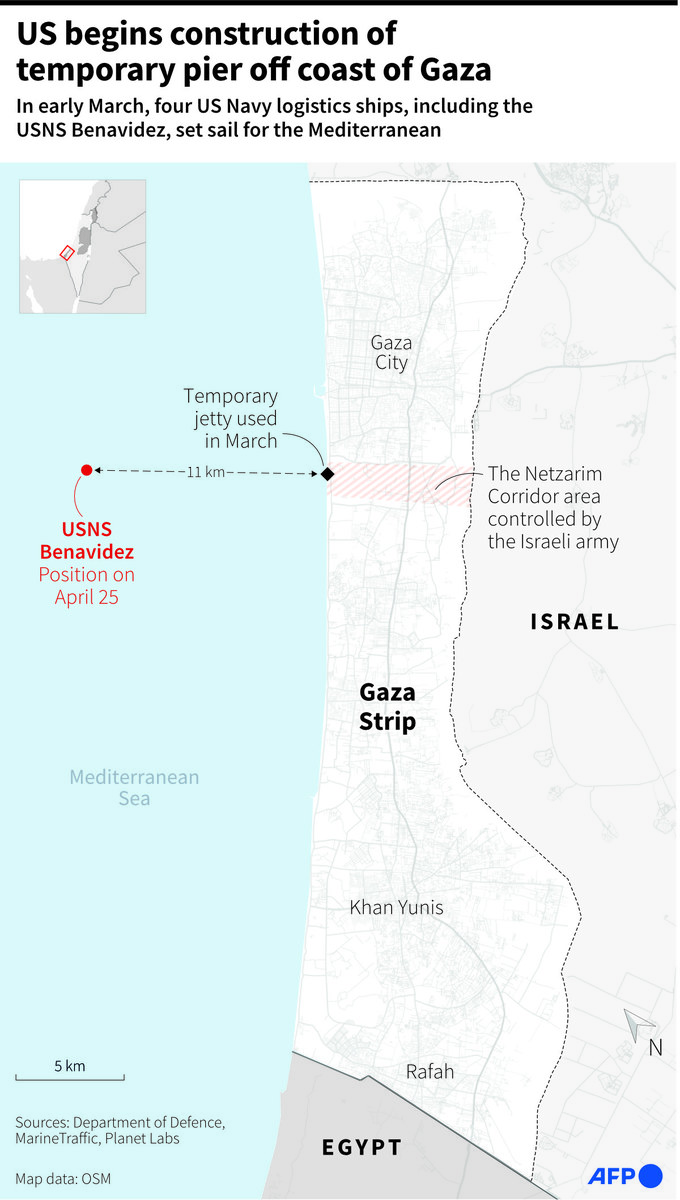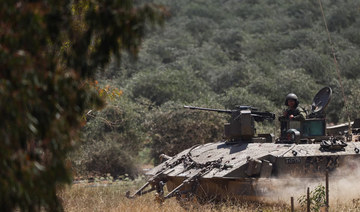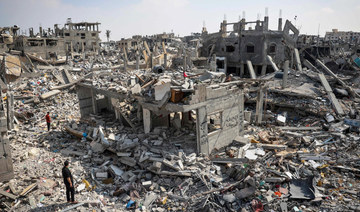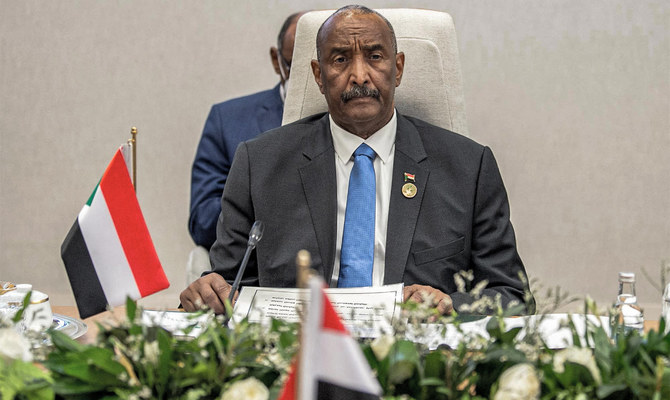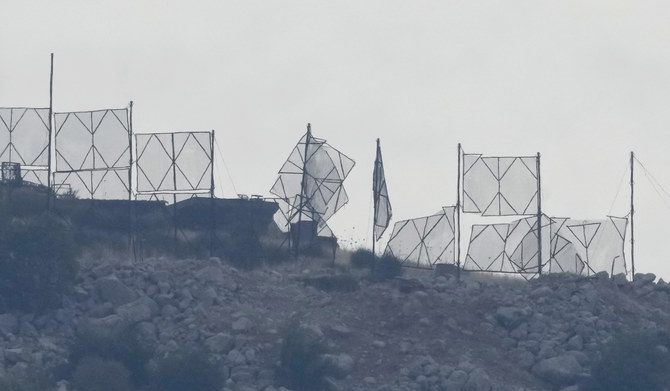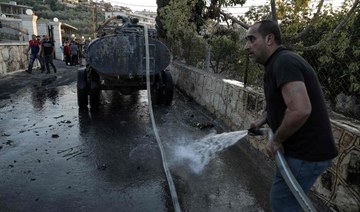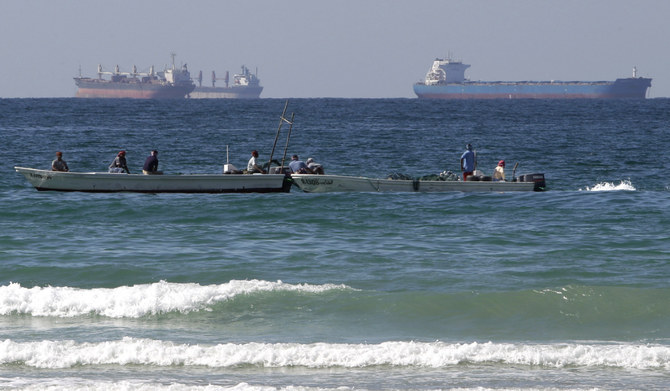RIYADH: The US administration has a responsibility to push back against efforts to undermine Saudi Arabia, former US Secretary of State Mike Pompeo says in an exclusive interview with Arab News, adding that to deny the Saudis “the capacity to defend themselves is just crazy, and yet that appears to be the direction this administration is taking.”
He says “the Iranian leadership understands how to drive a truck through American weakness” and that deterring the regime will require “a consistent, sound message” and “a willingness to impose a cost.”
Pompeo has also voiced strong objection to the Biden administration’s lifting of the Yemeni Houthi militia’s terrorist designation, pointing out that “no one disputes that the Houthis are terrorists and no one disputes that the Iranians are underwriting them.”
In the interview, he touched on a number of important issues including the spike in attacks on Saudi population centers and oil infrastructure, Iranian perceptions of the Biden administration's foreign-policy moves, the Houthis’ role in exacerbating the humanitarian crisis in Yemen, and the Trump administration’s handling of US-Saudi relations.
“In the end, the Iranian leadership, the (Supreme Leader) Ayatollah (Ali Khamenei) and all those around him understand one thing: They understand power. And when they take action and they see weakness or they see appeasement or they have an expectation that there will be appeasement, they’re going to continue to act out,” Pompeo said.
Sounding a blunt warning, he said: “So, whether it’s the effort that you have seen from the missile strikes that (the Iranians) have undertaken, or the efforts they have taken to continue to put pressure on the International Atomic Energy Agency (IAEA) to deny what we all know, their clandestine program, clandestine sites where they had WMDs that weren’t declared — those are the kind of things we will continue to see until the world, not just the United States, but the whole world, the E3 (UK, France, Germany) included, says that ‘That’s enough, we’re not going to allow this to happen anymore.’”
Pompeo was a congressman from Kansas who later served as CIA director under President Donald Trump before being nominated and confirmed as secretary of state in 2018. On his watch, the US adopted a campaign of “maximum pressure” to isolate the Iranian regime and kept open the option of a military strike to “keep Americans” safe.
Since leaving office in January, Pompeo has hit the speaking circuit and refused to rule out a potential 2024 presidential bid if his former boss, Trump, does not run. In addition to saying that he wants to help Republicans and advocate for conservatives, Pompeo has scolded the new US administration for refusing to put America first, especially in the context of the Middle East.
Pompeo told Arab News what makes him concerned is not just the “signals that the (Biden) administration sends; it’s the policy direction that they have indicated they intend to go.”
“They have made very clear that they would prefer to re-enter some kind of negotiation that’s closely tied to the 2015 JCPOA,” he said, referring to the Joint Comprehensive Plan of Action, commonly known as the Iran nuclear deal.
The deal was reached in July 2015 between Iran and the P5+1 (the five Permanent Members of the UN Security Council plus Germany) together with the European Union. The Trump administration withdrew the US from the JCPOA in May 2018, citing the flaws of its temporary nature, its lack of controls on Iran’s ballistic missile program and Iran’s “malign behavior” in Syria and elsewhere in the Middle East.
“Let’s go look at the actions. So far, the administration has de-designated a terrorist organization. No one disputes, no one disputes that the Houthis are terrorists. And no one disputes that the Iranians are underwriting them,” Pompeo said.
“This administration said: ‘We’re going to take them off the list.’ This administration worked alongside the IAEA to say ‘No, were not going to issue a report about this material that was at undeclared locations.’
“They now are going to allow money from the IMF and from the Republic of Korea to flow into Iranian coffers. These are the kinds of concessions, before there’s been any conversation about actually even entering into a negotiation. This connotes weakness and, I promise you, the Iranian leadership understands how to drive a truck through American weakness.”
Describing Saudi Arabia as “an important security partner” for the US, Pompeo said: “For an awfully long time, I think we neglected this (fact). When we get this right, we can put fewer of our young men and women, American young men and women, overseas in the Middle East facing risk, and we can support them.”
Elaborating on how this could be achieved, he said: “It always begins with a commitment, a diplomatic commitment, a commitment from the president of the United States, that says we understand that you in Saudi Arabia have the right to defend yourself when there are missiles being launched into your country. To deny them the capacity to defend themselves is just crazy, and yet that appears to be the direction this administration is taking.”
“Second, we worked with the Kingdom of Saudi Arabia on a broader range of issues, weapons sales, things that would provide security for the people of the Kingdom of Saudi Arabia.”
Pompeo rejected the common critique that the Trump administration ignored human rights in the process. “Nothing could be further from the truth,” he said. “We supported the Kingdom of Saudi Arabia as it began to open up inside, to allow women to be more active and to do many things which had been prohibited for an awfully long time. And real progress was made.”
He argued that the Trump administration did call out the Kingdom when mistakes occurred. And in the case of the killing of Jamal Khashoggi, the administration did sanction the operatives who were implicated.
At the time, the Kingdom admitted that a number of agents had exceeded their authority and ended up killing the late journalist in the Saudi consulate in Istanbul, Turkey, in 2018. A trial followed and five Saudis were sentenced to death with another three given jail time over the killing.
Still, Pompeo reiterated that having a “deep security relationship with the Kingdom is central American security and also to security throughout the Middle East.”
He drew a sharp contrast between Trump’s Middle East policy and that of its successor.
“We had three primary lines of effort. The first was to build a coalition against the largest state sponsor of terror in the world, the Iranian regime. And we did that,” he said.
“We built a coalition that included Arabs and Israelis. It included others too who were prepared to help us patrol the Straits of Hormuz. We built a real global coalition against Iran to deter military attack.
“Second, we put enormous economic pressure on the Iranian regime. We sanctioned them; we made sure that they couldn’t sell their crude oil around the world — all the things that would force the Iranian regime to make hard decisions about how to spend resources.
“If you want to underwrite Hezbollah, you have to have less money to feed and care for your people. If you want to support the Iraqi militias, if you want to help the Assad regime in Syria, we made them face difficult financial constraints with the hope that they would ultimately conclude that building out their nuclear program, and continuing to build their missile program, wasn’t in their country’s best interests.”
Pompeo continued: “The third thing we did is we supported the Iranian people. This is different to what the Obama administration did. We were very mindful that the Iranian people themselves want a life that is not terribly different than that people all around the world want — and that the theocrats, the kleptocrats in power in Iran today, (may) have the weapon systems but not the hearts and minds of the Iranian people.
“So, we did everything we could to support the Iranian people. Those three key pillars of our policy were the right direction. They were the thing that would create the best deterrent from Iran attacking Arab countries, provided the most assurance that the Iranian stated intent to wipe Israel off the face of the map, would not come to fruition.”
Pompeo says there is no reason to second-guess the Iranian regime’s mindset. “They’ve made it very clear they are prepared to do things all around the world, with what they see as securing their rights around the world,” he told Arab News.
“So, I talked about this when I was secretary of state a great deal, (about) their efforts to conduct assassination campaigns all across Europe.
“You’ve seen some of their actors arrested and imprisoned in Europe, after they’ve been caught. It always befuddled me to watch the E3 continue to cozy up to the Iranians and the JCPOA deal to say ‘No, this is the right direction,’ when in fact the Iranians were trying to kill people inside each of their countries.
“We certainly see that here in the United States too. We shouldn’t forget it wasn’t all that long ago that the Iranians had a plot to kill the Saudi ambassador right here, not very far from where I’m sitting here today in Washington D.C.
“They’ve a global campaign, a global espionage campaign, a global assassination effort, all in defense of a handful of senior leaders inside of Iran who are siphoning off the remaining funds available to the Iranians. We can’t continue to underwrite this.
“We can’t relieve these sanctions, until Iran releases all the American prisoners, until Iran comes to understand that it is unacceptable to engage in this kind of behavior. To reward that, to reward them with financial resources, only gives them an incentive to continue to do this and provides them with the capital to continue these programs.”
Moving on his decision to designate the Houthis a “foreign terrorist organization,” Pompeo told Arab News: “Of course. It was a simple step that was made by the (Trump) administration. It was straightforward. It didn’t take any great heavy lifting.
“But, look, the (Biden) administration can’t deny that these are terrorists, yet (it has) now said (the Houthis) are not terrorists. I understand the concerns that the world has about the humanitarian challenges inside of Yemen. Indeed, the Trump administration spent a great deal of American taxpayers’ money — and we convinced the Saudis and the Emiratis to do the same — to make sure that ordinary people in Yemen didn’t suffer famine.
“We worked really hard on this. We made sure, the best we could, that food got into that country. But the people who were preventing global aid from reaching those who actually needed that food and that medicine were, in fact, the Houthis.”
Alluding to President Joe Biden’s decision to drop the militia’s “terrorist” label, he said: “The Houthis have now demonstrated that if you continue to block routes of transit, if you continue to threaten ports, if you continue to take real estate, as they’re trying to do in Marib today, if they continue down that path, they’ll be rewarded with sanctions relief. That’s the wrong direction. They understand power. We’ve now demonstrated that we’re prepared to give them something when, in fact, they gave up nothing.”
Last week, Brent crude futures jumped above $70 for the first time in more than a year after Saudi oil facilities were targeted by missiles and drones. A petroleum tank farm at one of the world’s largest oil shipping ports was attacked by a drone while a ballistic missile targeted Saudi Aramco facilities, according to state news agency SPA. Shrapnel from the intercepted missile fell near residential areas in the city of Dhahran.
“You’ll recall that when the Saudi Aramco facility was targeted during our administration, I made (it) very clear where those missiles came from. They didn’t come from Yemen. These were Iranian missiles launched by the Iranians,” Pompeo told Arab News.
“This continued effort to undermine the Kingdom of Saudi Arabia and to threaten people, whether they’re in Dhahran — where there are many, many Americans — or they’re in Riyadh, is something that poses a real threat to stability throughout the Middle East.
“Our administration here in America, administrations all throughout Europe, have a responsibility to push back against this and impose real cost on the Iranians for this kind of misbehavior. It’s quite something that, somehow, missile launches of Iranian missiles have now become, (for) this administration at least, something that isn’t viewed as requiring a direct response.
“There are few places in the world where this would be permitted to happen without a serious response from the Western world, and that would include a serious response, at least rhetorically, from the United Nations. I hope that that takes place.”
Pompeo said while it is “hard to know day-to-day” whether the risk today is higher than what it was a week or two weeks ago, we know this: Deterring the Iranian regime requires a consistent, sound message and a willingness to impose costs on the Iranian leadership.”
So, what does Pompeo make of the US military strikes in Syria last month on a site used by two Iranian-backed Iraqi militia groups, ostensibly in response to rocket attacks on American forces in Iraq? President Biden later described the strike as a message to Iran: “You can’t act with impunity, be careful.”
Pompeo said that “if the response to Iranian aggression is to throw some missiles into the desert, or hit a supply building in Syria, which imposes almost no cost on the Iranian regime itself, if those are the responses, then there is little “likelihood of being able to establish deterrents to protect and defend our soldiers who are stationed all across the Middle East, not just in Saudi Arabia, but throughout all the Middle East.
In his view, “we have an obligation to get that right and it’s going to take a strong American response to deter them.”
Encouraged perhaps by the successful campaign to get Biden to end the Trump-era Houthi “terrorist” designation, some religious, political and humanitarian leaders have recently signed a letter calling on the US president to lift economic sanctions on Syria. But Pompeo considers the Caesar Syria Civilian Protection Act “really important.”
“The great news was it was a bipartisan effort, this wasn’t just the Trump administration,” he told Arab News. “It empowered me as then-secretary of state to take real actions and respond under the authority of the Caesar Act. It was very effective. It put pressure on Syrian businessmen who had deep connections to Iran. It put pressure on Hezbollah and businesspeople who were underwriting Hezbollah.
“It was incredibly effective. I hope the Caesar Act and the enforcement of that by the administration will continue.”



